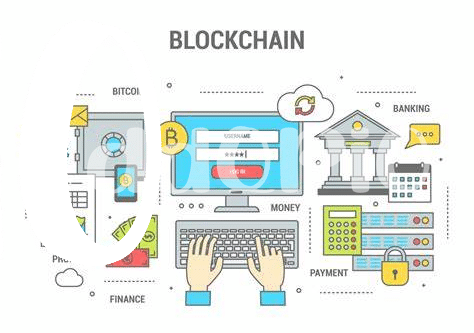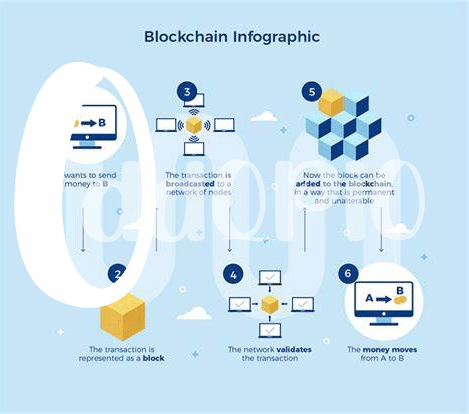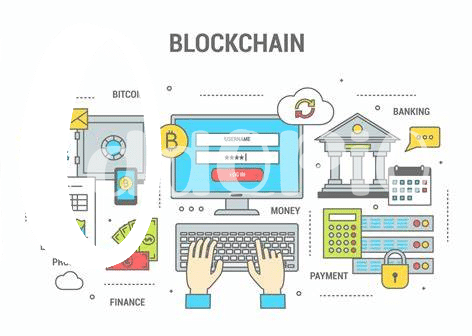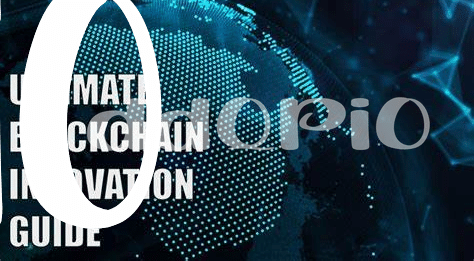Introduction to Blockchain Technology 🧱

Blockchain technology is a groundbreaking innovation that has captured the attention of industries worldwide. Its decentralized nature and secure framework have the potential to revolutionize the way businesses operate, offering transparency and efficiency like never before. By creating a tamper-proof system for recording and verifying transactions, blockchain opens up a world of possibilities for streamlining processes and enhancing trust among stakeholders.
With its ability to create digital ledgers that cannot be altered retroactively, blockchain technology provides a secure platform for transactions without the need for intermediaries. This innovation has the potential to disrupt traditional industries and pave the way for a more seamless and interconnected future. As businesses explore the capabilities of blockchain, the possibilities for innovation and collaboration continue to expand, setting the stage for a transformative era in industry practices.
Impact on Financial Sector 💰
Blockchain technology has significantly reshaped New Zealand’s industries, particularly in the financial sector. The introduction of blockchain has streamlined traditional financial processes, offering secure and transparent transactions while reducing intermediary costs. This innovation has propelled financial institutions to explore new business models and services, nurturing a more efficient ecosystem. Additionally, blockchain’s immutable ledger system fosters trust between parties and mitigates fraudulent activities, enhancing the overall integrity of financial transactions. As New Zealand continues to embrace blockchain, its financial sector stands to benefit from increased efficiency, security, and innovation, marking a pivotal shift towards a more robust and resilient financial landscape.
Supply Chain Transparency Advancements 🔍

Blockchain technology has revolutionized supply chain management by offering unprecedented levels of transparency and traceability. Through the use of blockchain, businesses in New Zealand are now able to track products at every stage of the supply chain, from sourcing raw materials to delivering the final product to the end consumer. This enhanced visibility not only ensures greater accountability but also helps in detecting and addressing potential issues promptly. By leveraging blockchain technology, companies can build trust with consumers by providing real-time information on product origins, production processes, and transportation details, ultimately leading to a more efficient and transparent supply chain ecosystem.
Enhanced Healthcare Data Management 🏥

Blockchain technology is making significant strides in healthcare data management, offering secure and transparent solutions for storing and sharing sensitive information. By utilizing blockchain, healthcare providers can ensure the integrity and confidentiality of patient data, minimizing the risks of unauthorized access or tampering. This innovative approach not only streamlines data management processes but also enhances the overall efficiency and accuracy of healthcare services, ultimately leading to improved patient outcomes and satisfaction.
The integration of blockchain in healthcare data management brings forth a new era of trust and reliability in the industry. With its decentralized nature and cryptographic security features, blockchain technology offers a robust foundation for safeguarding sensitive medical records and facilitating seamless data exchange between healthcare stakeholders. As the healthcare sector continues to embrace digital transformation, blockchain plays a pivotal role in driving innovation and shaping the future of data management in the industry.
Smart Contract Integration 📜
Smart contracts are revolutionizing the way transactions are conducted by automating and enforcing agreements in a secure and transparent manner. These self-executing contracts eliminate the need for intermediaries and reduce the risk of fraud, providing a more efficient and cost-effective way of doing business. By utilizing blockchain technology, smart contract integration has the potential to streamline various processes across industries, from real estate to supply chain management, with increased accuracy and trust.
Implementing smart contracts in New Zealand’s industries opens up opportunities for increased productivity and reduced operational costs. The decentralized nature of blockchain technology ensures that transactions are tamper-proof and can be easily traced, enhancing transparency and accountability. With further advancements in smart contract development, the potential for innovation and growth in various sectors is vast, although challenges such as regulatory compliance and standardization remain to be addressed.
Future Potential and Challenges Ahead 🔮

As blockchain technology continues to evolve, the future holds immense potential for its widespread adoption across various industries in New Zealand. The innovative capabilities of blockchain present opportunities for increased efficiency, transparency, and security in sectors such as finance, supply chain management, and healthcare. However, along with these benefits come challenges of scalability, regulatory frameworks, and interoperability. Overcoming these hurdles will be vital in unlocking the full transformative power of blockchain technology in shaping the future landscape of New Zealand’s industries.
Blockchain Technology Innovation Policies in Nigeria
